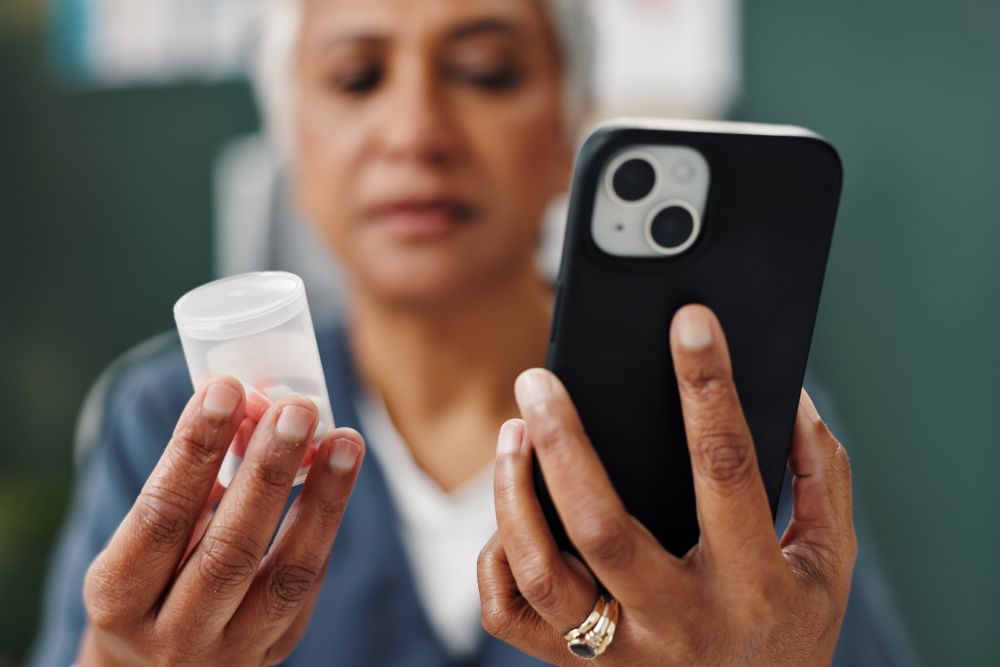Is Gabapentin Addictive? Understanding Its Uses, Risks, and Potential for Misuse

Published: December 31, 2024
Gabapentin is a widely prescribed medication with legitimate medical uses. However, concerns have grown in recent years about its potential for misuse and addiction. At Rockland Treatment Center, we aim to provide clear, accurate information to help individuals and their loved ones better understand gabapentin, its risks, and how to seek help if misuse becomes a concern.
What is Gabapentin and How is it Used?
Gabapentin is an anticonvulsant medication approved by the FDA in 1993 to treat:
- Seizures: Primarily used as an adjunct treatment for certain types of seizures.
- Neuropathic Pain: Pain caused by nerve damage, such as diabetic neuropathy or shingles-related pain.
Beyond its FDA-approved uses, gabapentin is frequently prescribed off-label for conditions like:
- Anxiety disorders
- Migraines
- Insomnia
- Restless legs syndrome
Its versatility has made gabapentin a staple in many treatment plans, but this widespread use has also contributed to growing misuse.
Is Gabapentin Addictive?
Gabapentin was originally believed to have a low potential for misuse or addiction. It is not classified as a controlled substance at the federal level, though some states have reclassified it due to rising rates of misuse. At the time of writing this article, that list includes Alabama, Kentucky, Michigan, North Dakota, Tennessee, Virginia and West Virginia. Please note that this list may change as legislation changes by state.
While one 2017 study concluded they “did not find convincing evidence of a vigorous addictive power of gabapentinoids,” clinical observations indicate that gabapentin can lead to dependency in certain individuals, such as those with current or past substance use disorders.
Why is Gabapentin Misused?
- Euphoric Effects: At high doses, gabapentin can produce feelings of relaxation or mild euphoria.
- Enhanced Effects with Other Substances: Gabapentin is often combined with opioids, alcohol, or benzodiazepines to amplify their effects.
- Perceived Safety: Many assume that because gabapentin is not a controlled substance in most areas, it’s safer to misuse than other medications.
Signs of Gabapentin Misuse
Recognizing the signs of gabapentin misuse is essential for early intervention. Look out for:
- Taking gabapentin in higher doses than prescribed or without a prescription.
- Combining gabapentin with other substances to enhance effects.
- Behavioral changes, such as secrecy, withdrawal from social circles, or neglecting responsibilities.
- Doctor shopping or seeking prescriptions from multiple providers.
- Physical symptoms like dizziness, confusion, or fatigue beyond typical side effects.
Understanding the Risks of Gabapentin Misuse
While gabapentin has a legitimate place in medical care, misuse can lead to serious consequences:
- Dependence and Withdrawal: Prolonged misuse can result in physical dependence. Withdrawal symptoms may include anxiety, agitation, sweating, rapid heart rate, and nausea.
- Overdose Risk: Taking gabapentin in high doses, especially with other depressants like alcohol or opioids, can lead to respiratory depression and overdose.
- Cognitive Impairment: Chronic misuse can impair memory, concentration, and decision-making abilities.
- Exacerbation of Mental Health Issues: Misuse can worsen underlying conditions like anxiety or depression.
Who is Most at Risk?
Certain individuals may be more vulnerable to gabapentin misuse, including:
- People with a history of substance use disorders.
- Individuals using gabapentin without medical supervision.
- Those seeking relief from chronic pain, anxiety, or insomnia without addressing the underlying causes.
How is Gabapentin Addiction Treated?
At Rockland Treatment Center, we understand the challenges of overcoming addiction, including dependency on medications like gabapentin. Our comprehensive approach to treatment includes:
- Medical Detoxification: When necessary, we can refer to a facility that manages withdrawal symptoms under professional supervision.
- Individualized Therapy: Addressing the root causes of misuse through evidence-based therapies.
- Group Support: Building a community of understanding and accountability through group therapy sessions.
- Long-term Recovery Planning: Providing tools and resources to help individuals maintain sobriety after completing treatment.
How to Seek Help
If you or someone you love is misusing gabapentin, it’s important to act quickly. Misuse can escalate, leading to serious health complications. At Rockland Treatment Center, our compassionate team is here to provide the guidance and care needed for recovery.
A Message of Hope
Gabapentin is a helpful medication for many, but like any drug, it carries risks when misused. Understanding those risks and recognizing the signs of misuse can make all the difference. Recovery is possible with the right support and resources.
If you’re concerned about your gabapentin use or the use of someone close to you, don’t wait. Contact Rockland Treatment Center today and take the first step toward healing and freedom from addiction.
